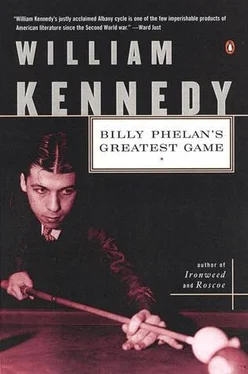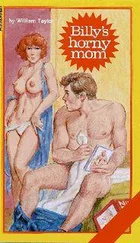“Your point is clear, Jake, but I still want a statement.”
“Print this. That I’m not dead, not even defeated, that I’ll take the party’s case to court, and that we’ll win. If ever the right to free elections was violated, then it was violated today in Albany with this farcical maneuver.”
“The McCalls own the courts, too,” said the young man. “Even the Federal court.”
“There are honest judges. We’ll find one,” Jake said.
“We won’t yield to mob rule,” the young man said.
“He’s right,” Jake said. “We will not. You know an Irish mob threw my grandfather out a third-story window in New York during the Civil War. They were protesting against their great enemy back then, the niggers, but they killed a pious old Jew. He tried to reason with them, with the mob. He thought they would listen to reason, for, after all, he was an intelligent man and had nothing to do with the war, or the niggers. He was merely living upstairs over the draft office. Nevertheless, they threw him down onto the street and let him lie there twitching, dying, for hours. They wouldn’t let anyone pick him up or even help him, and so he died, simply because he lived over the draft office. It was a moment of monstrous ethnic truth in American history, my friend, the persecuted Irish throwing a persecuted Jew out the window in protest against drafting Irishmen into the Union Army to help liberate the persecuted Negro.
“But the enormous irony hasn’t led to wisdom, only to self-preservation and the awareness of the truth of mobs. My father told me that story after another mob set fire to paper bags on our front porch, and, when my father came out to stomp out the flames, the bags broke and human excrement squirted everywhere. A brilliant stroke by the mob. They were waiting with their portable flaming cross to watch my father dance on the fire and the shit. Fire and shit, my friend, fire and shit. Needless to say, we moved soon thereafter.”
“The Klan’s an old friend of mine, too, Jake,” Martin said. “They burned a cross in front of my house and fired a shot through our front window because of what I wrote in support of Al Smith. You can’t blame the Klan on the Irish. Maybe the Irish were crazy, but they were also used as cannon fodder in the Civil War. I could match grandfathers with you. One of mine was killed at Antietam, fighting for the niggers.”
Jake held a letter opener in his hand like a knife. He poked the point of it lightly at the exposed desk top. Then his arm went rigid. “Goddamn it, Martin, this is a stinking, lousy existence. Goddamn its stink! Goddamn all of it!” And with sudden force he drove the point of the letter opener into the desk top. The point stuck but the blade broke and pierced the muscle of his thumb.
“Perfect,” he said, and held his hand in front of his face and watched it bleed. The young man ran to the bathroom for a towel. He wrapped the wound tightly as Jake slumped in his chair.
“Violence solves it all,” Jake said. “I no longer feel the need to say anything.”
“We’ll talk another night,” Martin said.
“I won’t be less bitter.”
“Maybe less bloody.”
“And unbowed.”
“There’s something else, Jake, and you ought to know. It’ll be in the paper tonight. Your son, Morrie, is named as a possible intermediary in a kidnapping.”
“Repeat that, Martin.”
“Bindy McCall’s son, Charlie, was kidnapped this morning and the ransom demand is a quarter of a million. The McCalls are publishing a list of names in a simple code, names of men they view as potential go-betweens for the kidnappers to pick from. Morrie is one of twelve.”
“God is just,” said Jake’s young aide. “The McCalls are now getting theirs back.”
“Stupid, stupid to say such a thing,” Jake snapped. “Know when to be angry.”
“I just saw Morrie,” Martin said, “getting ready to go into a card game.”
“Naturally,” said Jake.
“I may see him later. Do you have any message?”
“We no longer talk. I have three daughters, all gold, and I have Morris, a lead slug.”
Martin suddenly pictured Jake with a flowing beard, knife in hand on Mount Moriah, cutting out the heart of his son.
“I just had a vision of you holding that letter opener,” Martin said to Jake. “You look very much like an engraving of Abraham I’ve looked at for years in the family Bible. Your hair, your forehead.”
“Abraham with the blade.”
“And Isaac beneath it,” said Martin. He could not bring himself to mention the dissection of Isaac. “The likeness of you to that drawing of Abraham is amazing.”
As he said this Martin was withholding; for he now had a clear memory of the biblical engraving and it wasn’t like Jake at all. Abraham’s was a face of weakness, a face full of faith and anguish, but no bitterness, no defiance. And the knife did not touch Isaac. Abraham’s beard then disappeared in the vision. Where he gripped the sacrificial knife, part of a finger was missing. Isaac bore the face of a goat. The vision changed. The goat became a bawling infant, then a bleating lamb. Martin shut his eyes to stop the pictures. He looked at the samovar.
“Isaac,” Jake was saying. “God loves the Isaacs of the world. But he wouldn’t have bothered to ask Abraham to sacrifice a son as worthless as my Morris.”
“Now you even know what God asks,” Martin said.
“I withdraw the remark.”
With his gaze, Martin restored the samovar, new leg, new handle, new spigot. Steam came from it once again. He looked up to see the 1936 poster: Roosevelt, the Working Man’s President. Out of the spigot came the hot blood of centuries.
Bump Oliver was a dapper little guy with a new haircut who played cards with his hat on. Billy met him when he sat down at the table in Nick Levine’s cellar, just under the electric meter and kitty-corner from the old asbestos coal furnace which smudged up the cellar air but didn’t heat it enough so you could take off your suit coat. New man on Broadway, Nick said of Bump when he introduced him to Billy; no more than that and who needs to know more?
And yet after Bump had dealt twice, Billy did want to know more. Because he sensed a cheater. Why? Don’t ask Billy to be precise about such things. He has been listening to cheater stories for ten years, has even seen some in action and found out about it later, to his chagrin. He has watched Ace Reilly, a would-be cheater, practicing his second-card deal for hours in front of a mirror. Billy even tried that one himself to see how it went, but didn’t like it, didn’t have the patience or the vocation for it. Because cheaters, you see, already know how it’s going to end, and what the hell good is that? Also, Billy saw a cheater caught once: a salesman who played in Corky Ronan’s clubroom on Van Woert Street, and when Corky saw he was using a shiner, he grabbed the cheater’s hand and showed everybody how he wore it, a little bit of a mirror under a long fingernail. Joe Dembski reached over and punched the cheater on the side of the neck, and the others were ready to move in for their licks, but Corky said never mind that, just take his money and he won’t come back, and they let the cheater go. Why? Well, Corky’s idea was that everybody’s got a trade, and that’s Billy’s idea too, now.
So Billy has seen all this and has thought about it, and because he knows so well how things should be when everything is straight, he also thinks he knows when it’s off center, even when it’s only a cunt hair off. That’s how sensitive Billy’s apparatus is. Maybe it was the way Bump beveled the deck and crooked a finger around it, or maybe it was his eyes and the fact that he was new on Broadway. Whatever it was, even though Bump lost twelve straight hands, Billy didn’t trust him.
Читать дальше












